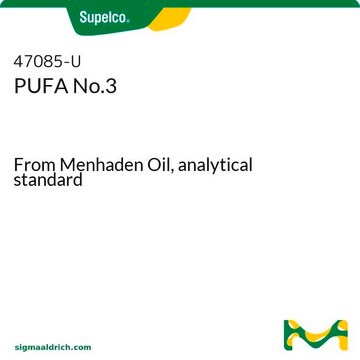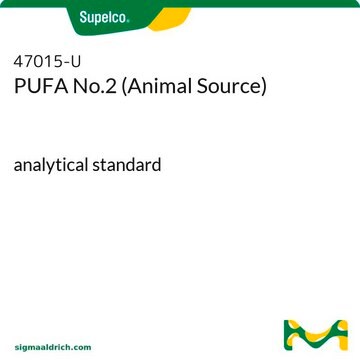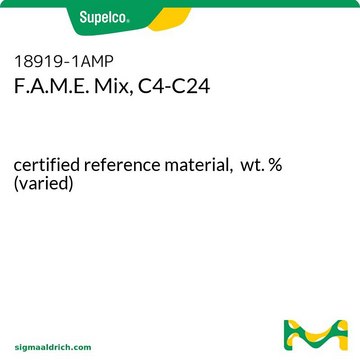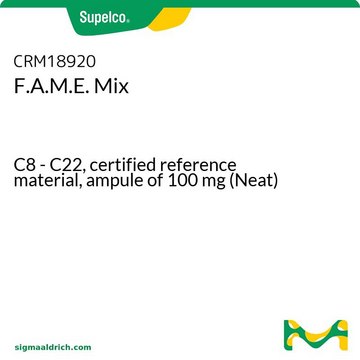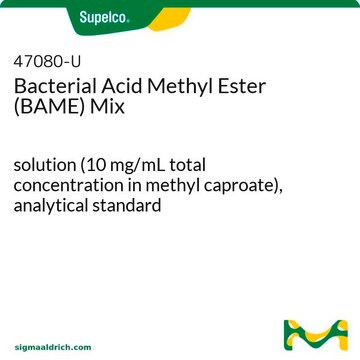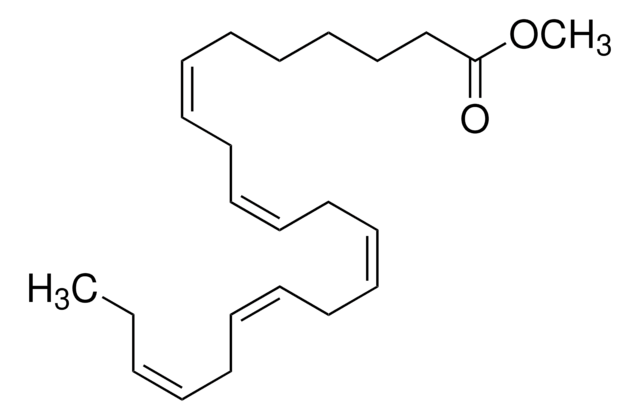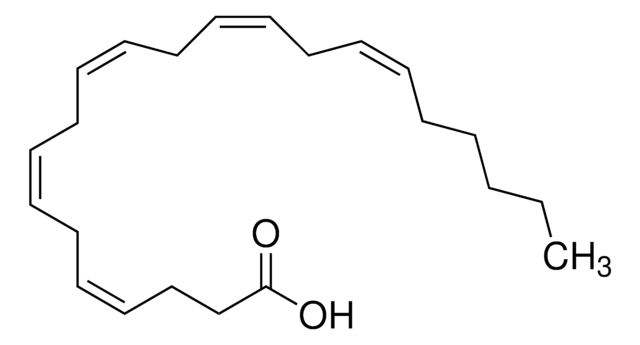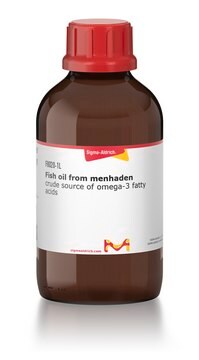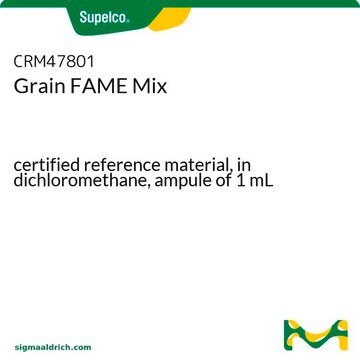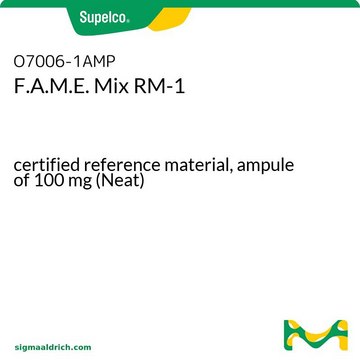47033
PUFA No.1
Marine source, analytical standard
Synonym(s):
Polyunsaturated Fatty Acid Mix No.1
About This Item
Recommended Products
biological source
fish oil
Quality Level
grade
analytical standard
CofA
current certificate can be downloaded
packaging
pkg of 100 mg
concentration
(varied concentration)
technique(s)
HPLC: suitable
gas chromatography (GC): suitable
application(s)
food and beverages
format
neat
shipped in
dry ice
storage temp.
-10 to -25°C
General description
Application
Other Notes
Product is extracted from natural sources. The fatty acid composition varies from lot-to-lot. The fatty acids listed below may or may not be present in the current lot. A representative chromatogram is supplied with product.
Certificate of Composition is not available on-line. Please contact your local Sigma-Aldrich office for documentation.
Analyte
Storage Class Code
10 - Combustible liquids
WGK
WGK 1
Flash Point(F)
Not applicable
Flash Point(C)
Not applicable
Regulatory Listings
Regulatory Listings are mainly provided for chemical products. Only limited information can be provided here for non-chemical products. No entry means none of the components are listed. It is the user’s obligation to ensure the safe and legal use of the product.
JAN Code
47033:
Choose from one of the most recent versions:
Already Own This Product?
Find documentation for the products that you have recently purchased in the Document Library.
Customers Also Viewed
Our team of scientists has experience in all areas of research including Life Science, Material Science, Chemical Synthesis, Chromatography, Analytical and many others.
Contact Technical Service